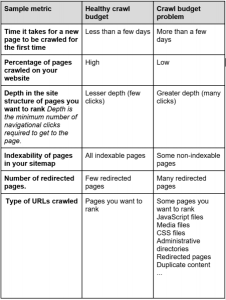
It is that time of the year, when most of us schedule mid-year appraisals for ourselves and assess progress against the goals that we set up at the start of the year.
While this is a good practice (if you do this, not just as an activity to just tick off of your to-do list, but in all its sincerity, you are already better than most people), this still isn’t setting yourself up for success. I am as guilty of this as anyone else.
Is this your story?
I did my half yearly appraisal earlier this week and realised the following:
- I am ahead and on track on a couple of goals.
- One particular goal is no longer relevant for me due to the changes in my priorities.
- I was behind on a couple of goals.
- I hadn’t even started on a specific goal.
When i speak to successful people around me, I hear a similar story.
Do take a moment and reflect on the status of all your goals for a minute? Do you have a similar story as well?
We can always do some course corrections and still achieve or even go well beyond the goals that we set for ourselves by doing this. However, we are falling short on a few things:
- We are not being the most productive that we can be.
- We are also creating situations, where we might end up in a situation where the course corrections at this stage might not help us go past the goal that we set for ourselves.
The Research & Reflection
When I wanted to understand what would be the ideal way to stay on top of our goals and truly fulfil our potentials, I did what one would generally do.
- Read books on the topic.
- Ask people whom I consider to be consistently doing great work.
- Reflect upon what we learnt in the process.
Lessons From The Research
Some things that I learned in my research:
Measure Progress Weekly:
- The best time period to measure progress is weekly. It takes a few minutes to review progress and helps ensure that we are always on track. It also gives us quick feedback on what strategy is working and what is not, so that we can course correct and attempt different strategies.
Action Oriented Goals Vs Result Oriented Goals:
- Instead of having result goals (reduce weight by 5kg or sell goods worth 100k), it is better to have action oriented goals (walk 12k steps a day, connect with at least ‘x’ customers every day). The trick is to identify actions, which when done on a regular basis will result in achieving the result goal that we want to achieve. These are easier to measure (as these are generally, Yes/No goals) and are a better indicator of our probability of success, and one that is in our control.
Design your environment:
- Our environment can play a crucial role to either help or hinder us to achieve our goals. So, it is important that we carefully design our environment (having a bottle of water on our desks if we want to drink more water). We can create certain nudges (reduce the size of plates in our households if we want to reduce weight) and habits (drink water every time I check email on my phone or connect with a customer, every time I check facebook/twitter) that prompt us to take actions that will take us towards achieving our goals.
As a result of the research
And the result of these learnings, I have decided to put in place the following process starting today:
- I have created a single page goal sheet, which covers almost all the goals that I have in life. This includes professional goals & personal goals (spiritual, financial, intellectual, emotional & physical).
- I keep this sheet on the desktop of my laptop, a print out on my desk at the office and in the bathroom at home.
- I have a bottle of water on my desk at all times. I have outsourced the responsibility to ensure that this is the case to my wife (if I am working from home) and an office attendant while I am in office.
- I have identified a set of behaviours that I have grouped into dailies and weeklies
- I have 2 index cards on which I write the actions I would like to take in the week (both for Dailies and weeklies).
- I have written down on the dailies card, the actions, that I will take every day of the week and leave a gap for me to mark once I have done the activity.
- I have written down on the weeklies card, the actions that I will take at least once in the week to follow and leave a gap to mark completion of the activity.
- I have written down on the dailies card, the actions, that I will take every day of the week and leave a gap for me to mark once I have done the activity.
- I will carry the cards in my wallet and review both of them every single day before I go to bed and mark the activities that I did that day.
- Review the previous week cards & create the new set of cards for next week every Sunday.
I will check back again in a few weeks on what impact this has had on my productivity and performance.
Your Turn
What are your strategies for success?
Business & Finance Articles on Business 2 Community(179)
Report Post




